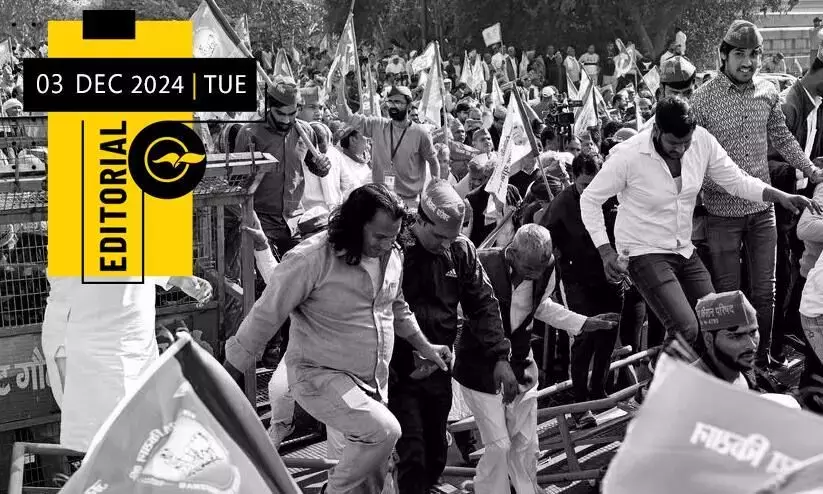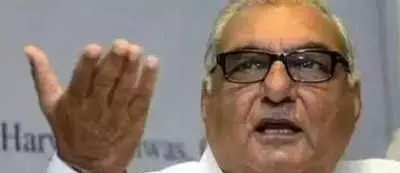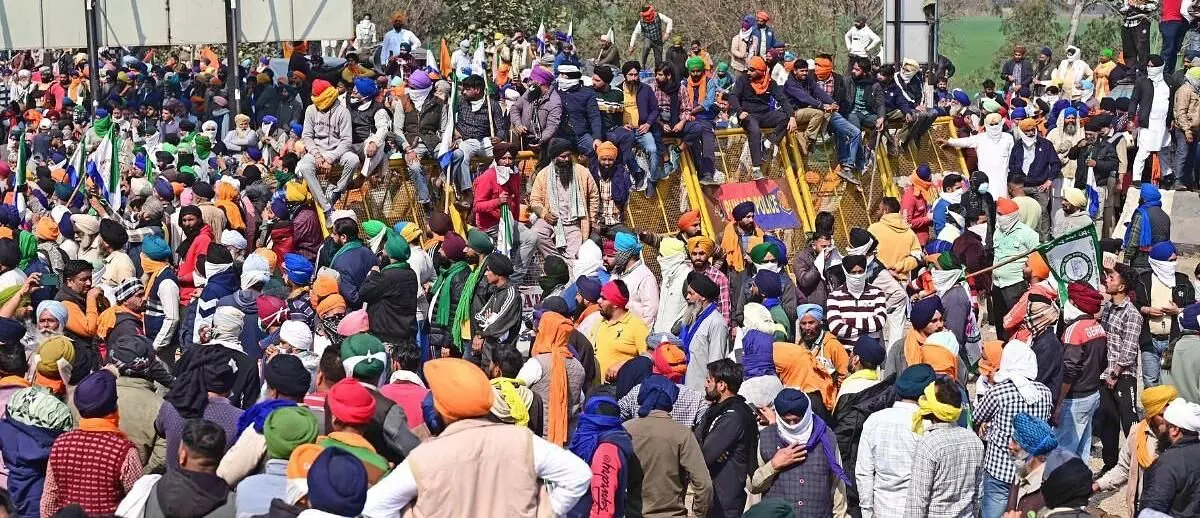
Farmers' anger erupting again
text_fieldsThe efforts of the BJP and the NDA alliance to deflect attention from issues and silence those raising them, during the election campaign are what truly led them to their electoral victory for a third term. However, the problems the people face cannot be concealed by the rhetoric of the ruling leaders, including the Prime Minister, or by victory declarations in elections the process of which are often criticized for their artificiality. The government shows no genuine interest in finding solutions to these problems. Furthermore, to protect power, they have been employing communal polarization politics in such a way as to consolidate Hindu votes and maintain them as a unified support base. Recent attempts to make surveys under mosques to find temple remnants have been made as if they form a national policy program promoting communalism. Former Supreme Court judge Justice Markandey Katju recently compared the Prime Minister to Janus, the double-faced Roman god. The public face of Modi represents promises such as ‘sabka saath, sabka vikas,’ Digital India, the five-trillion economy, and bullet trains. However, the hidden face embodies action plans that negate all these. If we examine the Indian experience under Modi's government, which has reached its third phase, it will be clear that there is no exaggeration in what Katju observed. In their rush to win through communal polarization, they have even abandoned their election promises aimed at improving their image. Because of this, many public protests are set to make a come back in the same old model. The farmer’s strike, which has become more active since yesterday, is just one example.
The farmers' protest, which initially demanded a Minimum Support Price (MSP) for agricultural crops and opposed the new farm laws that denied it, had nearly faded into obscurity due to the authorities' utter neglect. In Haryana, the BJP government implemented harsh anti-people measures to prevent farmers, particularly those from Punjab who refused to back down, from advancing. On February 13, farmers announced a Delhi march, prompting the central and state BJP governments to devise various strategies to block it. As part of these efforts, the Central government, led by ministers Piyush Goyal, Arjun Munda, and Nityanand Rai, expressed willingness to engage in discussions to defuse the protests. However, the farmers rejected the government's proposal to grant MSPs for a few crops for five years through government agencies. But the farmers demanded legally protected MSPs for 22 crops. When their demands were not accepted, they once again prepared for a Delhi march on February 21, but the government resorted to using force to prevent them. As a result, the farmers established camps at the Shambhu and Khanauri borders. As ten months have passed, now they have resolved to make Delhi the focal point of their protest once again. The Bharatiya Kisan Parishad's march began on Monday. Meanwhile, the Kisan Mazdoor Sabha and the Samyukt Kisan Morcha have announced their march for December 6. In parallel, organizations in Uttarakhand, Kerala, and Tamil Nadu have planned marches to their respective state legislatures.
The demands raised by the farmers include payment of four times the compensation due to the farm land acquired, a per the new Land Acquisition Act introduced by the Central government, January 1, 2014. immediate allocation of rights that have been pending for the past ten years in Gautam Buddha Nagar district as per the new law, legally recognizing the MSP, writing off agricultural loans for protesting farmers, increasing subsidies to support the agricultural, dairy, fruit, vegetable, and meat sectors and reduce import dependence, offering a monthly pension of ₹10,000 to farmers and agricultural workers aged 58 and above, extending the Pradhan Mantri Fasal Bima Yojana insurance scheme to cover all crops, and ensuring justice for the victims of the violence against farmers in Lakhimpur Kheri, as well as withdrawing from the WTO agreement, The Central government has failed to address any of these demands related to farmers' livelihoods. On the contrary, the authorities are showing a defiant unwillingness to tolerate protests against the government's flawed policies. As a result, they are ignoring legitimate demands that need resolution.
Vice President Jagdeep Dhankhar on Sunday appealed to the farmers, who are escalating their protests, to come to the path of dialogue and find solutions through mutual discussions. He pointed out that, for India to stand tall as a developed nation on the centenary of independence, farmer satisfaction is essential, and when a farmer is distressed, the dignity and pride of the nation are at stake. The second highest citizen of the nation highly praises to the sky the greatness of farmers. However, that greatness has not been recognized by the Central government, as being proven by the farmers' unrest gathering steam again.

























